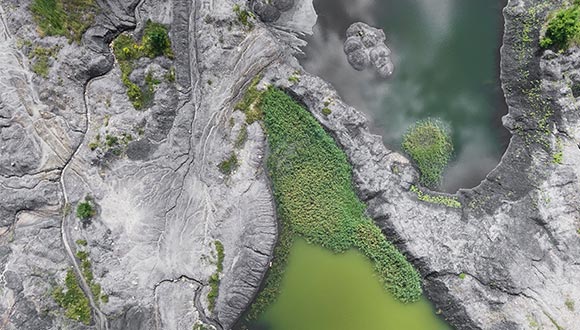Satellites are overestimating vegetation's ability to absorb atmospheric carbon dioxide
According to an article by CREAF researchers Benjamin Stocker and Josep Peñuelas published in Nature Geoscience, drought impact studies based on satellite data do not factor in the effects of soil moisture.

Satellites and their sensors are extremely useful for studying climate change. They can be used to find out how quickly vegetation anywhere on the planet is growing and, thus, to predict its capacity for removing carbon dioxide (CO2) from the atmosphere and halting global warming.
Satellite technology has its limitations though. A team of scientists led by CREAF researcher Benjamin Stocker and CREAF-based CSIC researcher Josep Peñuelas has recently found that satellite data on plant activity underestimate the impact of drought on vegetation because they fail to take the direct effects of low soil moisture into account. As the researchers point out in an article published in the journal Nature Geoscience, soil moisture is vital to calculating drought impact but is currently overlooked.
Soil moisture determines how greatly drought affects vegetation and alters its ability to capture CO2.
Soil moisture determines how greatly drought affects vegetation and alters it ability to capture CO2. “We found that omitting the key role of soil moisture means overestimating plant primary production by approximately 15%, based on a globally distributed network's measurements of such production”, says Peñuelas.
In this case, the scientists warn, satellite data are not enough. It is also necessary to consider soil moisture data, which are crucial to understanding and accurately measuring the way vegetation is affected by extreme drought, a phenomenon that will become increasingly common as a result of climate change.
Stocker, B. D., Zscheischler, J., Keenan, T. F., Prentice, I. C., Seneviratne, S. I., & Peñuelas, J. Drought impacts on terrestrial primary production underestimated by satellite monitoring. Nature Geoscience. DOI: 10.1038/s41561-019-0318-6







